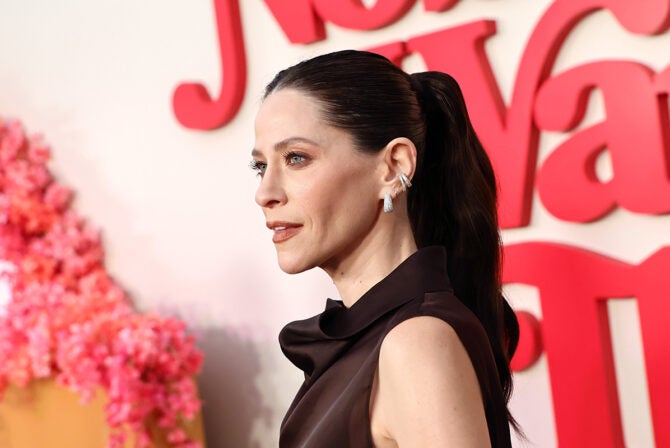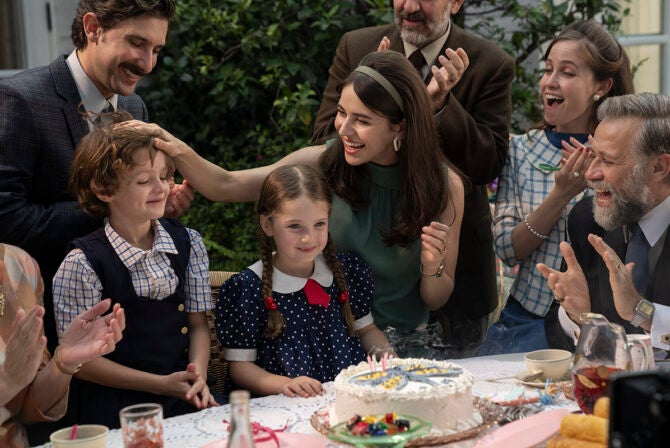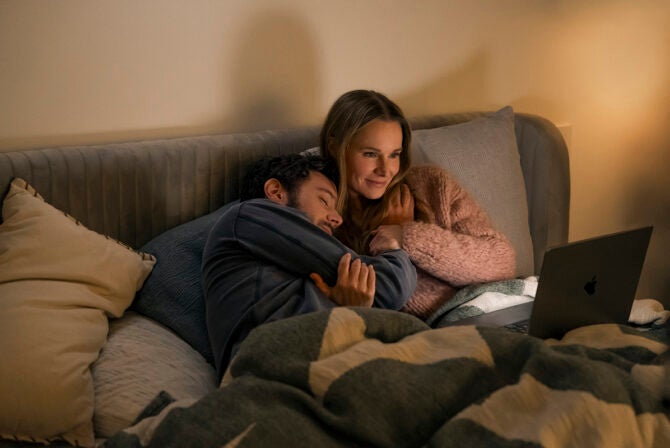While none of novelist Dara Horn’s books have been set at summer camp (yet!), her stories focus in on the American Jewish experience, from the Civil War south to suburban New Jersey. Horn’s fifth novel, Eternal Life, released earlier this year, is about a woman named Rachel who can’t die — she was born in Roman-occupied Jerusalem and she’s now living in the twenty-first century.
Kveller had the opportunity to speak with Horn about her near-death experience at summer camp and why summer camp is so special for American Jews.
Where did you go to camp?
I spent three summers at Camp Ramah in the Berkshires, where two of my children now go — and where I’ll be returning the week of July 16 to teach creative workshops as Artist in Residence! Ramah (which has locations around the country) is a very immersive Jewish camp, and religious observance and Hebrew culture are a central part of camp.
I also spent two summers at Camp Blue Star in North Carolina. Blue Star is also a Jewish camp, though compared to Ramah, its Jewish aspects were more limited. It was, however, an interesting way for me as a New Jersey kid to meet kids from Jewish communities of the South.
What’s your most embarrassing camp story?
My worst camp story isn’t embarrassing as much as it’s horrifying, because I almost died. At Blue Star when I was 12, our bunk went on a whitewater rafting day trip on the Nantahela River. Near the end of the course, we were crossing a whitewater “waterfall” of large boulders when a girl fell out of our raft. Everyone slid over to one end of the raft to help pull her back in. I happened to be sitting on the opposite end, and when the weight shifted, my end of the raft sprang up in the air and sent me flying out of the raft entirely — over everyone’s heads, over the “waterfall” and into the rapids twenty yards downstream. Everyone was so busy tending to the rescued girl that no one noticed I was gone until I was well beyond help. The river was loud. No one heard me scream.
I swam through over a mile of white water rapids, dodging rocks in the current, until the river calmed. At that point I was spotted and rescued by a raft full of non-English-speaking strangers, who dumped me on a riverbank and continued on their way. I then wandered through the woods before emerging at a parking lot, where I found my bunkmates shopping at a gift shop, oblivious to my absence and near-death. (I found my counselors at a payphone, slightly more concerned.)
What type of letter writer were you?
I grew up to be a novelist, so my letters home were rather epic. The problem with this was that it often took me several days to compose these epics, and my near-death experience took quite some time to adequately recount on my rainbow stationery. Add to that the 3-5 business days that mail took to reach New Jersey, and you get what happened next: a full two weeks after my rafting mishap, counselors pulled me out of lunch to take me to the nurse, to have my head examined. My parents had finally gotten my letter and called the camp, while I had moved on with camp life.
Why do you think so many Jews love camp?
I think that Diaspora Jews, for the past 2,000 years, have felt an urgent need to create autonomous communities to preserve their often-threatened culture — a dream that ultimately was realized in Zionism, but that also exists in a very, very miniature form in these American Jewish summer camps.
I attended a very non-Jewish private school as a child, and I remember feeling a strange sense of comfort in these camp settings that I never felt at school. It wasn’t just that the camp celebrated Shabbat the way we did at home. I think I sensed that I was immersed in a world of people from families like mine.
Camp Kveller is our series dedicated to all things summer camp.








